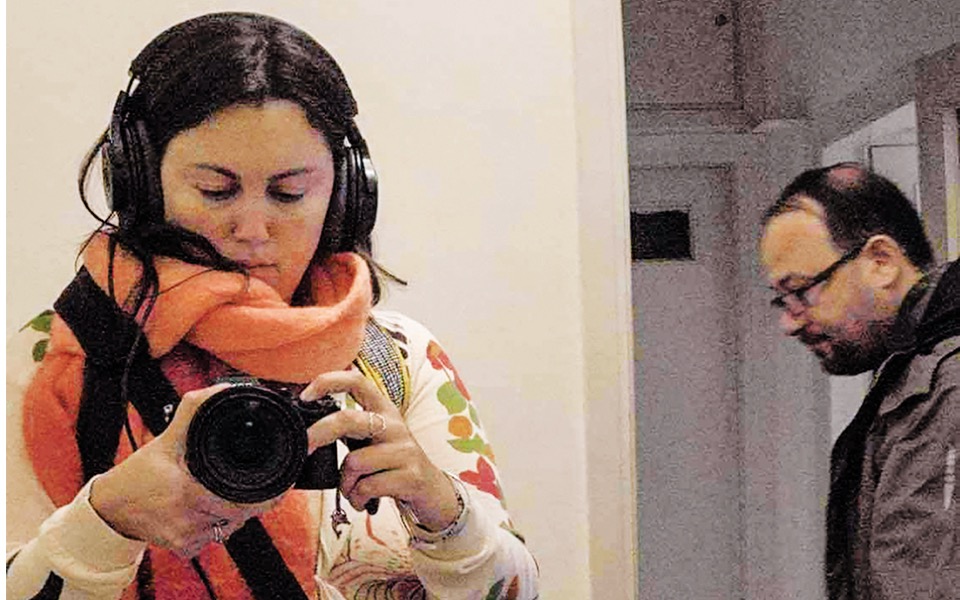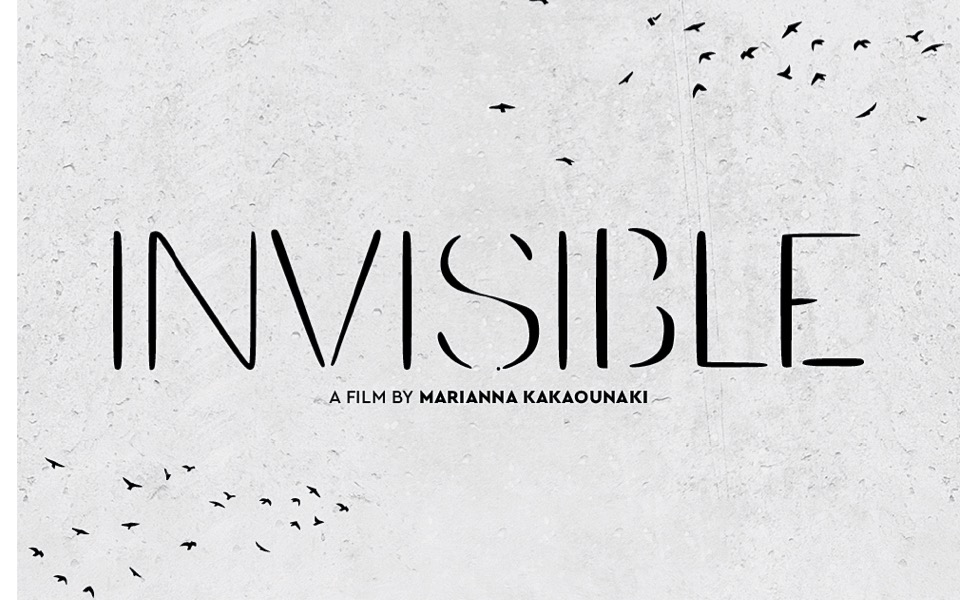The invisible come into focus
Film by Maria Kakaounaki to premiere at Copenhagen International Documentary Festival

“Invisible,” by Marianna Kakaounaki, is included in the official list of the 2021 Copenhagen International Documentary Festival, which runs through May 12. It is described by the festival organizers as “an acute political film with a human heart.”
The Greek entry will compete alongside 64 films from around the globe (out of over 2,500 submissions) in six categories. “Invisible” will premiere internationally on April 25 in the F:act category, dedicated to documentary filmmaking and investigative journalism.
My interest in this Greek international premiere isn’t just professional. Marianna Kakaounaki is a colleague at Kathimerini, we have collaborated, and I have observed her silent persistence and commitment to subject matter firsthand. Marianna, who is 39 years old, already has a rich CV with many skills and much experience not just from her strong educational background but also her work in electronic and print media.
What is “Invisible,” however, which is taking her to the world’s third biggest documentary festival? The story first appeared in an article by Kakaounaki in Kathimerini’s weekend magazine on October 13, 2019 (“They won their freedom, they lost everything”), before it was turned into a script and film by the first-time director.

A Turkish couple, Ebubekir and Gonca Kara, both teachers who are supporters of the Gulen movement, were forced to leave their country three years after the coup attempt in July 2016 and the subsequent wave of persecutions unleashed by Turkish President Recep Tayyip Erdogan. They had three children aged between 3 and 8 years old. They boarded a speedboat on the Turkish coast which set out with 18 people – nine adults, including teachers, judges and academics, and nine children – for the Greek island of Chios. They did not all survive the trip as the boat capsized and seven people died. Five of the victims were children.
In September 2019, the couple arrived in Athens with their youngest son Ali Ihsan, which is when we first encounter them in the film.
Kakaounaki, having earned their trust, along with Apostolos Nikolaidis, the director of photography, follows them everywhere. From the moment they first open the door to an apartment in inner-city Athens, which was filthy and bug-ridden, to its diligent transformation into a clean and pleasant home.
Entering the apartment was the “first time I felt like a refugee,” said Ebubekir. The lens clearly captures the dignity and strength with which they deal with an inconceivable loss. The trauma is there and it defines them, but there is no time to grieve, as there is only one goal: to leave for a different European country. They tried seven times.
Alongside the story of the Kara family, we get a glimpse into the life of another Gulen supporter, 35-year-old Ahmed, a doctor who also fled persecution in his Turkey. “There are about 1,000 families of us here in Greece,” he says. The lens moves from his home to his community, from the specific to the general, to people who “leave their home only when home does not let you stay.”
Ahmed has adapted well here, loves Greece and is learning Greek. He says that only by knowing a language “can you feel at home.” Along with his compatriots, he is creating a legal entity because they do not want to hide. “We must be visible,” he insists. “Erdogan was looking for an excuse to make us invisible. Is it possible that 1 million Turks were terrorists? Impossible.”
Gonca, who likes needlework and books, especially their smell, admits “I do not miss my home. I miss the memories I have there with my children. I am disappointed that the people there remain silent, experiencing persecution.” On Chios Gonca buried two of her children with her bare hands.
Is “Invisible” a political film? “It was a big dilemma when writing the script,” replies Kakaounaki. “I wanted to make a film that primarily tells a human story, not a political one. My purpose was to focus on the people, to shed light on their journeys, highlighting the global nature of their story.
It has happened millions of times: a dictator who violates human rights and laws, forcing a portion of his citizens into exile. Their desires are predictable, conventional, they do not differ from anyone else. They want to have a job, to pay the bills, to offer their children a better life. I do not know if a documentary film can help. I do know that it is vital to make these people visible.”
We ask Kakaounaki if the people in the film wanted to become “visible.” “For a long time, they were opposed to the idea and scared. They realized in the end that they had nothing to lose because they had already lost everything.
The only thing they asked was to keep their current country of residence a secret. I think helping these people share their stories is a great privilege of being a journalist. It is a cathartic experience for both sides.”






